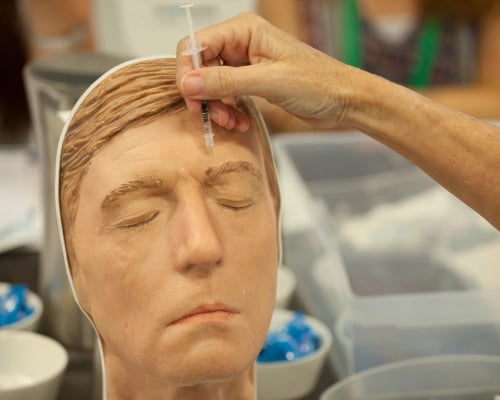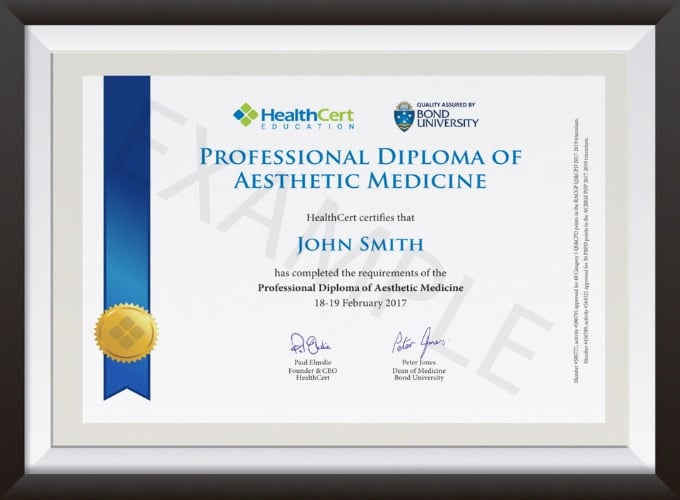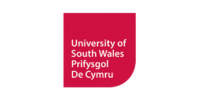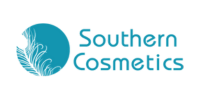This week we revisit a case submitted by Dr Cheh Goh. A nurse brings in their 62-year-old father...
.jpg?height=200&name=HCE%20HubSpot%20blog%20images%20600x350%20(52).jpg)
Gain expert clinical knowledge in cosmetic medicine principles and treatments, including minimally invasive aesthetic treatments.

This course is ideal for doctors seeking the most advanced clinical knowledge and critical awareness of aesthetic medicine principles and treatments, with immediate applicability to day-to-day work. Build upon the knowledge gained in the Professional and Advanced Certificates, with a greater focus on complex cases and the required know-how to set up an aesthetic medicine clinic.
- This medical aesthetic training is for physicians.
- Focuses on difficult and complex cases in aesthetic medicine.
- Includes observation and participation in supervised facial aesthetics procedures.
- The online course is quality-assured by Bond University.
- CPD accredited.
Fulfils 50 hrs for medical professionals in Australia
100% online
Online + workshop
Fully online: $2595
Online + workshop: from $3895
Special rates available
95.5 hours
Self-paced
2026
22 March in Brisbane
17 May in Melbourne
20 September in Sydney

- Offer a broad range of minimally invasive aesthetic treatments, including advanced applications of volumisers and neuromodulators.
- Gain knowledge in the use of laser therapies for various skin conditions, including melasma.
- Acquire advanced skills in facial threadlifts.
- Attract a wider patient demographic and grow revenue.
- Provide non-surgical body shaping and ultrasound treatments.
- Provide comprehensive skin health care by addressing non-cosmetic skin concerns like acne and rosacea.
Get unlimited access to all course content, additional learning materials, ongoing post-course support, and more.
*These topics are covered during the face-to-face sessions in the optional skills workshop. Find out more about our new-and-improved workshops below and view the workshop program here.
This module looks at higher level biostimulator techniques for hollow temples, forehead shaping, upper eyelid hollowing, nose and panfacial rejuvenation. A comprehensive knowledge of facial anatomy is assumed.
Unit one demonstrates procedures on the temple, forehead and glabella lines including the needle versus cannula, adverse events and managing these complications.
Unit two focuses on the upper eyelid and nose (non-surgical rhinoplasty) including proportionate guides for the nose. Adverse effects are outlined.
Unit three outlines panfacial rejuvenation and the ‘8 point lift’.
Unit four covers non-HA collagen stimulating volumisers and biostimulators. The reasons for using these volumisers is outlined including issues and adverse effects.
Unit five examines the use of calcium hydroxylapatite and polylactic acid and polycaprolactone. It outlines the mechanism of action for each, its uses and technique. Contraindications and aftercare are mentioned
Unit six outlines collagen stimulating volumisers including danger zones, adverse effects and prevention of biofilm and nodules.
This module introduces facial threadlifts and explains the various types of threads available in Australia. They include absorbable/non-absorbable, barbed/non-barbed and length of threads. Without favour, four techniques are included detailing the differences and application of each thread. Thread compositions are outlined for each option.
Contraindications and complications are addressed. Unit two outlines the advantages of this technique for the ageing face and stresses the importance of understanding the mode of action of each thread, their differences and expected results.
This module focuses on the use of laser to treat melasma conditions including epidermal, dermal and epidermal/dermal blend. It discusses treatment options including how to achieve the best results with lasers. The use of lasers for skin rejuvenation including wrinkle/scar reduction is increasing. Non ablative lasers and ablative lasers are discussed including the different modalities and principles for both styles. Patient assessment guidelines are outlined including pre-treatment preparation, indications, contra-indications and aftercare. Clinical examples of ablative resurfacing are provided for various conditions including treating sun damage, burn and acne scarring and possible complications associated with fractional ablative resurfacing.
This module introduces the use of lasers for treating onychomycosis, warts/verrucae, snoring and sleep apnoea and some gynaecological treatments including stress urinary incontinence, vaginal relaxation syndrome, vaginal atrophy and pelvic organ prolapse. The types of lasers and laser settings are suggested for each procedure together with patient assessment considerations. Preparation for each procedure and each treatment process is outlined including clinical images and diagrams. Contraindications and non-laser options for these conditions are listed.
This module introduces the theory of radiofrequency and ultrasound including the physics of various wave forms. Information regarding these modalities for non-invasive skin tightening and how it can be used to promote skin health and rejuvenation are described in detail. The module explores radiofrequency including the electromagnetic spectrum and the wavelength absorption spectrum. Monopolar, bipolar, unipolar and multipolar radiofrequency information is presented. The suitability and application of radiofrequency in aesthetic medicine is outlined together with complications and challenges. The module then explores ultrasound in depth. Properties, intensity and categories of sound waves are described before moving in the application of ultrasound in aesthetic medicine. The reasons when ultrasound is an appropriate treatment option are listed. The four categories of mechanism of action effect are thermal, mechanical, cavitation and biological and each of these are discussed in detail. Examples of ultrasound equipment and common treatment areas are included before information on complications and challenges are listed.
This module describes two modalities for non-surgical body contouring in detail – cryolipolysis and lipolysis. Cryolopolysis destroys fat cells and involves cooling target tissue for a specified time at a specified temperature. The lipolysis process uses lasers to break cells apart and reduces the volume of fatty tissue. The basic concepts and mechanism of action are explained. Contraindications, complications, side effects and patient assessment and procedure protocol are outlined. The use of deoxycholic acid versus cryolipolysis is discussed. Other modalities included in this module are heat generating devices, radiofrequency and high intensity microfocused ultrasound.
This comprehensive module discusses acne and includes the pathogenesis, subtypes, patient history and examination, when to investigate, treatment options including the management of side effects, management of scarring and when to refer to an expert. It recognises and outlines treatment options for adolescents and treatment options for post-adolescents. Diet, stress, topical agents, hormonal influences and skin care regimes are factors to consider when treating this condition.
Rosacea is discussed in the second unit. It outlines triggers and treatment options including topical and oral approaches. Laser and light therapy is considered.
This advanced course module outlines the treatment areas for lip lines/barcode wrinkles, gummy smile, dimpled chin, masseter hypertrophy, platysmal banding/neck bands, marionette lines and chemo-resurfacing. Patient assessment and expectations are crucial considerations when determining treatment. To achieve the best results a thorough knowledge of facial anatomy, planes, dosage and technique is imperative. In each of the key treatment areas above, comprehensive instructions are outlined including handy hints. "Micro-toxin" is introduced for forehead and central T zones, cheeks, lower eyelids, jawline, neck and decolletage areas. The module concludes with listing danger points not to be ignored, to stress the importance of a comprehensive assessment of patients requesting aesthetic procedures.
As the pinnacle of aesthetics training at HealthCert Education, the Professional Diploma of Aesthetic Medicine goes beyond traditional coursework to deliver a truly immersive, practice-enhancing experience. In addition to course activities, a standout feature of this program is the clinical audit, where participants submit and analyse their own real-world cases — a powerful opportunity to directly apply your learning. This hands-on component, combined with an in-depth literature review of journal articles, ensures participants leave with both academic rigour and practical excellence.

Fellow of the Cosmetic Physicians College of Australasia
Board Certified with the American Academy of Aesthetic Medicine
Aesthetic Medicine Physician
Founder and director at Melbourne Aesthetics Clinic, Box Hill, Victoria
Dr Mirjana Janjic has a special interest in women’s health. During 20 years’ experience in general practice, Mirjana treated many women’s health problems which led her to specialise in medical laser treatments. She trained under expert gynaecologists Dr Sabina Sencar and Dr Urska Bizjak Ogrinc – pioneers in the use of minimally invasive gynaecological laser procedures.
Mirjana now provides medical and aesthetic laser treatments and trains doctors on the use of laser therapies out of her own medical rooms in Box Hill, Melbourne. Striving for excellence in medicine, Mirjana is continuously perfecting her expertise in laser and aesthetic techniques to deliver the best care for her patients.

Doctor at National Skin Cancer Centres, New Town
Additional qualifications: MMed (Skin Cancer), Dip. Aesthetic Medicine (AAAM)
Dr Dianne King has been working as a family GP for over 20 years, a graduate from UTAS medical school in 1989.
She has had a keen interest in dermatology throughout this time and obtained her DPD in Cardiff while working in the UK during the early part of her career.
In the last 18 years, she has subspecialised in skin cancer medicine and surgery, obtaining her Masters of Medicine in Skin Cancer from UQ in 2010.
Di established one of the first standalone skin cancer clinics in Hobart with her business partners in 2009, and in recent years has undergone further training in aesthetic medicine. This has proven to be great adjunct to her skin cancer practice, evolving into a business model of the “one stop skin shop” where everything from skin cancer diagnosis and treatment, phototherapy for aesthetic and dermatological conditions, and various cosmetic treatments are available. Di has been actively involved as a guest lecturer for UTAS medical students in skin cancer for the past 10 years.
In her “spare” time, Di also lectures for HealthCert in the recently developed Aesthetic Medicine courses aimed at primary care and skin cancer physicians.

Aesthetic Medicine Physician and Medical Director at Southern Cosmetics, Victoria
Fellow of the Cosmetic Physicians College of Australasia
HealthCert Course Chair for Aesthetic Medicine
Dr Jenny Kimmins spent many years in General Practice before developing an interest in management and treatment of skin conditions. She has over 10 years’ experience in cosmetic medicine, including the management of acne and rosacea, laser skin treatments, dermal fillers and anti-wrinkle injections. She is a lecturer and trainer in aesthetic medicine and injectable cosmetic treatments. Jenny completed a postgraduate Diploma in Dermatology with the Australian Institute of Dermatology and is a trained skin cancer physician with a special interest in sun-damaged skin. She was recently awarded a Fellowship of the Cosmetic Physicians College of Australasia.

Dr Anthony Rixon graduated from the University of Queensland in 2001 with a post-graduate degree in Medicine. Prior to this, he undertook a Bachelor of Biomedical Science majoring in Physiology. He has trained extensively in hospitals both in Australia and overseas.
In 2009, he completed expert training in general practice, achieving his Royal Australian College of General Practice Fellowship (FRACGP). He has since focused on skin and cosmetic medicine. Anthony has also completed a Masters of Medicine specialising in skin cancer. This is recognised as the most comprehensive qualification in skin cancer diagnosis and treatment. Additionally, he has detailed knowledge of facial anatomy and understands the intricacies of structures underneath the skin.
Anthony is recognised as a skilful injector through his participation in advanced workshops on dermal filler and wrinkle-relaxant treatment. He regularly attends conferences showcasing the most current information on cosmetic medicine, staying up-to-date with the latest technologies and techniques.
*Note: The workshop component is an optional self-submitted CPD activity and is not university reviewed.
Our Aesthetic Medicine workshops have had a refresh!
New format. More hands-on. Same trusted presenters.
We have trimmed the theory, streamlined demonstrations, and built in more hands-on practice —
making these our most practical Aesthetic Medicine workshops yet.
WHAT'S NEW?
💉 90 minutes of hands-on injecting included in every workshop.
💡 Less theory, more time for hands-on practice — just as you asked.
🎓 A more focused, technique-based format designed for real clinical application.
If you have joined us before, now is the time to return and experience the difference!
from $2595
Bundle two courses and save 5%, or three courses and save 10% upon enrolment. Talk to us about deferred payment options, registrar scholarships and special rates.
*For Australian residents only: Online course prices are shown exclusive of GST. If you are GST-registered, please enter a valid ABN at checkout to ensure GST is not applied. Otherwise, 10% GST will be added at checkout. View our FAQ for more information.


The Professional Diploma of Aesthetic Medicine presented informative and complex case discussions and there was a significant demonstration provided with each lecture. There was a smooth harmony through the lectures in terms of timing and breaking.
Dr M. Jacoub
The Professional Diploma is presented by very experienced doctors and all the workshops are very well organised.
Dr N. Lishchenko
The Professional Diploma provides a good source of up to date, topical information delivered by real people!
Dr B. Thomson
A very well organised course offering great learning resources, with an opportunity to interact with highly skilled professionals over the weekend.
Dr S. Shinwari
I wish I had completed this course two years ago. My time in general practice so far has not enhanced my diagnostic or surgical skills and I have been scared about skin checks! I actually feel not only confident but empowered. A fantastic course! Thank you!
Dr A. Mooney
| RACGP Activity Number | ACRRM Activity Number | Activity Title | Education Hours | Performance Hours | Outcome Hours | ||
|---|---|---|---|---|---|---|---|
| 454624 | 38855 | Common modalities for non-surgical body shaping | 454624 | 38855 | 4 | 5 | 0 |
| 454537 | 38850 | Laser use: Pigment melasma and resurfacing | 454537 | 38850 | 4.5 | 5 | 0 |
| 454640 | 38857 | Acne and Rosacea | 454640 | 38857 | 4.5 | 5 | 0 |
| 454467 | 38838 | Volumising techniques, biostimulators and complex applications | 454467 | 38838 | 4 | 5 | 0 |
| 454561 | 38852 | Ultrasound and radio frequency treatment | 454561 | 38852 | 4 | 5 | 0 |
| 454545 | 38851 | Non-aesthetic use of lasers | 454545 | 38851 | 4 | 5 | 0 |
| 454650 | 38859 | Advanced wrinkle-relaxant treatment part 2 | 454650 | 38859 | 4.5 | 5 | 0 |
| 454514 | 38849 | Introduction to facial threadlift procedures | 454514 | 38849 | 4.5 | 5 | 0 |
| 608226 | 38868 | Clinical Audit of Aesthetic Medicine: wrinkle-relaxant treatment | 608226 | 38868 | 0 | 2 | 19.5 |
| 652922 | 38869 | Clinical Audit of Aesthetic Medicine: Volumising techniques | 652922 | 38869 | 0 | 2 | 19.5 |
| Total hours | 34 | 44 | 39 | ||||
Note: The workshop component is an optional self-submitted CPD activity and is not university reviewed.
The comprehensive, peer-reviewed clinical audit associated with this Professional Diploma exceeds the minimum annual CPD outcome measurement hours.
The Professional Diploma of Aesthetic Medicine is suitable for physicians only.
Participants must have completed the Advanced Certificate of Aesthetic Medicine (or a qualification deemed equivalent) and HealthCert also recommends successful completion of at least 50 cases of aesthetic medicine prior to enrolment.
Participants do not have to pass an IELTS test but, as the courses are delivered in English, proficiency in listening, reading and writing in English is assumed.
Participants will require access to a computer/laptop, an internet connection and a basic level of technology proficiency to access and navigate the online learning portal.
Professionally recognised qualifications and prior studies may be recognised for entry into this course if the learning outcomes match exactly. Please ask a HealthCert Education Advisor for an individual assessment of your prior qualifications and experience.
This certificate course meets the minimum 50 hours CPD annual requirement across all three mandatory CPD activity types.
Upon successful completion of the course requirements, course participants will receive the Professional Diploma
This program:
Australia-based course participants, please note that HealthCert certificates are not accredited by TEQSA or ASQA and do not fall within the Australian Qualification Framework. All HealthCert certificates are professional development awards, accredited by RACGP, ACRRM and RNZCGP.
To learn more about the delivery of certificates in Australia and overseas, please visit our FAQs.
Professional Diploma Pathway
This course is the final stage of the diploma pathway. The full pathway is the Professional Certificate of Aesthetic Medicine the, Advanced Certificate of Aesthetic Medicine and the Professional Diploma of Aesthetic Medicine.
Postgraduate Pathway for Aesthetic Medicine awarded by the University of South Wales
This pathway is suitable for doctors who are mainly interested in clinical academic study. The Postgraduate Diploma and Master of Science in Cosmetic Medicine is studied entirely online through Diploma MSc and awarded by the University of South Wales (UK). Medical professionals who successfully complete the HealthCert Professional Certificate, Advanced Certificate and Professional Diploma of Aesthetic Medicine will be eligible to apply for Recognition of Prior Learning (RPL) for module 1 of the Postgraduate Diploma of Cosmetic Medicine which will save them time. When the Postgraduate Diploma has been successfully completed, doctors can apply for credit towards the MSc in Cosmetic Medicine awarded by the University of South Wales. In addition, they will receive up to £500 scholarship for the MSc course and £250 for the PGDip course when they inform our partner’s applications team that they are a HealthCert graduate. Please apply directly here.
Postgraduate scholarships for Aesthetic Medicine
HealthCert graduates who successfully complete the Professional Diploma of Aesthetic Medicine receive a scholarship of up to £500 (approximately $1,000) towards the Master of Science in Cosmetic Medicine. The postgraduate course is offered entirely online through DiplomaMSc in the UK and awarded by the University of South Wales. This scholarship is only available to HealthCert alumni. Learn more or enrol here.
Certified clinical attachments pathway
Clinical attachments are optional and available on a 1:1 basis. These provide the opportunity to observe aesthetic medicine physicians and ask questions of the expert performing the procedures. Many doctors find this a very valuable learning experience.
This organisation is an RACGP-accredited CPD provider under the RACGP CPD Program.



.png?width=200&height=100&name=Bond%20(2).png)


Don't see your question? Explore other faqs or talk to us.
Fees will vary based on the program and study option selected (fully online vs online + optional practical workshop). Payments can be made upfront or in monthly instalments. Special rates and various payment options are available. GP registrars and doctors in training enjoy a scholarship of up to $500. Talk to us to learn more.
Completion of any HealthCert course or attendance at an event will enable you to access the HealthCert Alumni Program which includes:
HealthCert Education is pleased to issue digital credentials for alumni. Digital credentials are a permanent online record of your successful completion of a HealthCert course and are issued to all course participants in addition to PDF certificates. If you are based in Australia, you also have the option to order a hard copy of your digital certificate for a small additional fee.
The recommended study duration of this certificate course is 95.5 hours, which includes study of the pre-course activities and readings, online lectures, live tutorials, and online assessment. This self-paced course offers the flexibility of 100% online study in your own time, at your own pace, in your own home or office, with no mandatory face-to-face requirements. You are not required to be online at specific times but can view and replay video lectures at your convenience.
All HealthCert courses meet World Federation of Medical Education standards. This certificate course qualifies for CPD hours from the Royal Australian College of General Practitioners (RACGP) and the Australian College of Rural and Remote Medicine (ACRRM) in Australia. It is recognised by the Royal New Zealand College of General Practitioners (RNZCGP) in New Zealand. It is recognised by the Hong Kong College of Family Physicians (HKCFP) in China. It is a self-submitted activity in Dubai and the United Kingdom. It is a self-submitted activity through the College of Family Physicians in Canada. If you live or work outside one of the above-mentioned countries, please contact us on admin@healthcert.com to discuss whether this course can be recognised in your country.
Want to stay up-to-date with the latest case studies, podcasts, free video tutorials and medical research articles pertinent to primary care?
Want to stay up-to-date with the latest case studies, podcasts, free video tutorials and medical research articles pertinent to primary care?
Our Education Advisors can assist you with any queries and tailor our education pathway to suit your current expertise, interests and career goals.